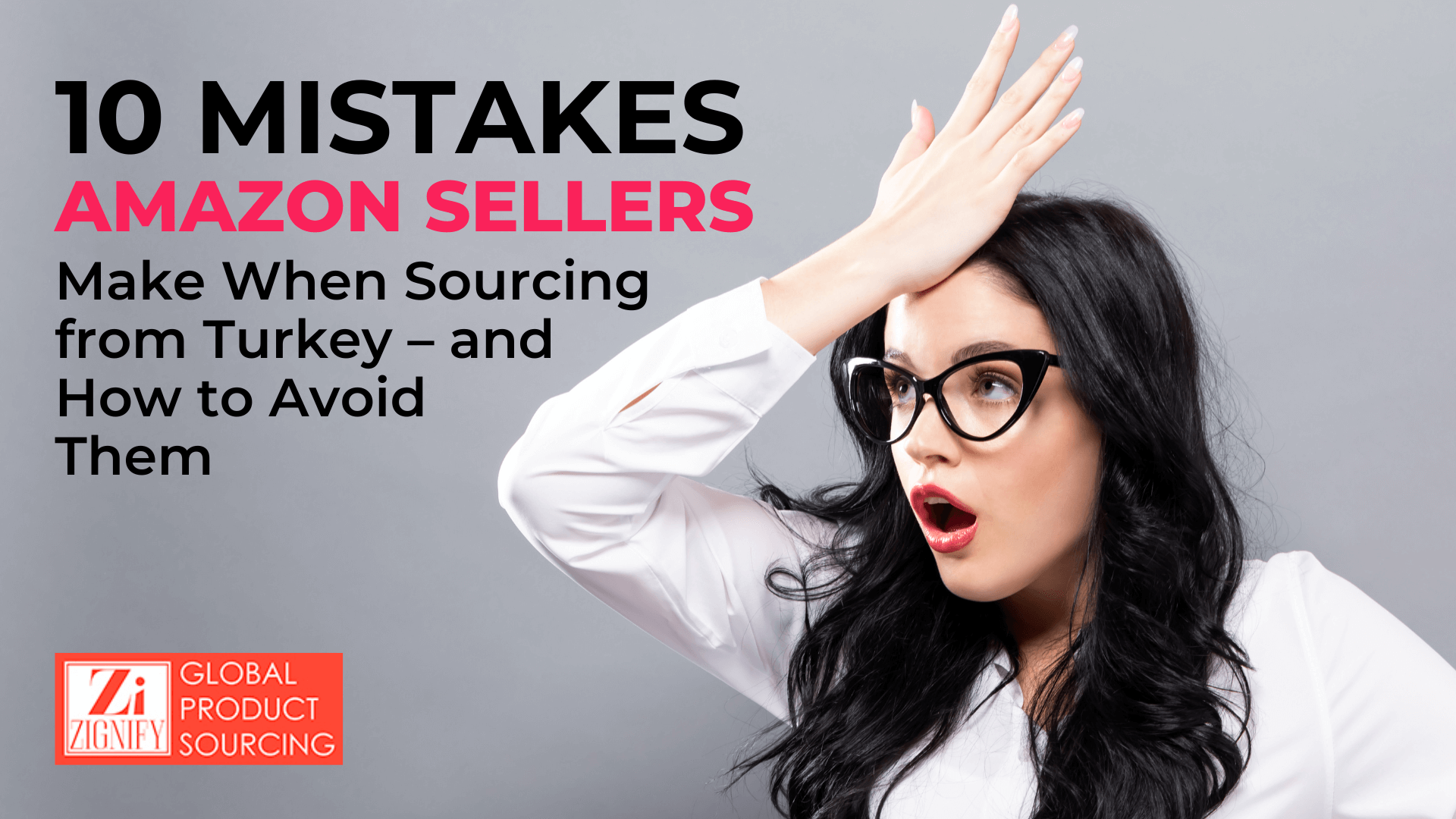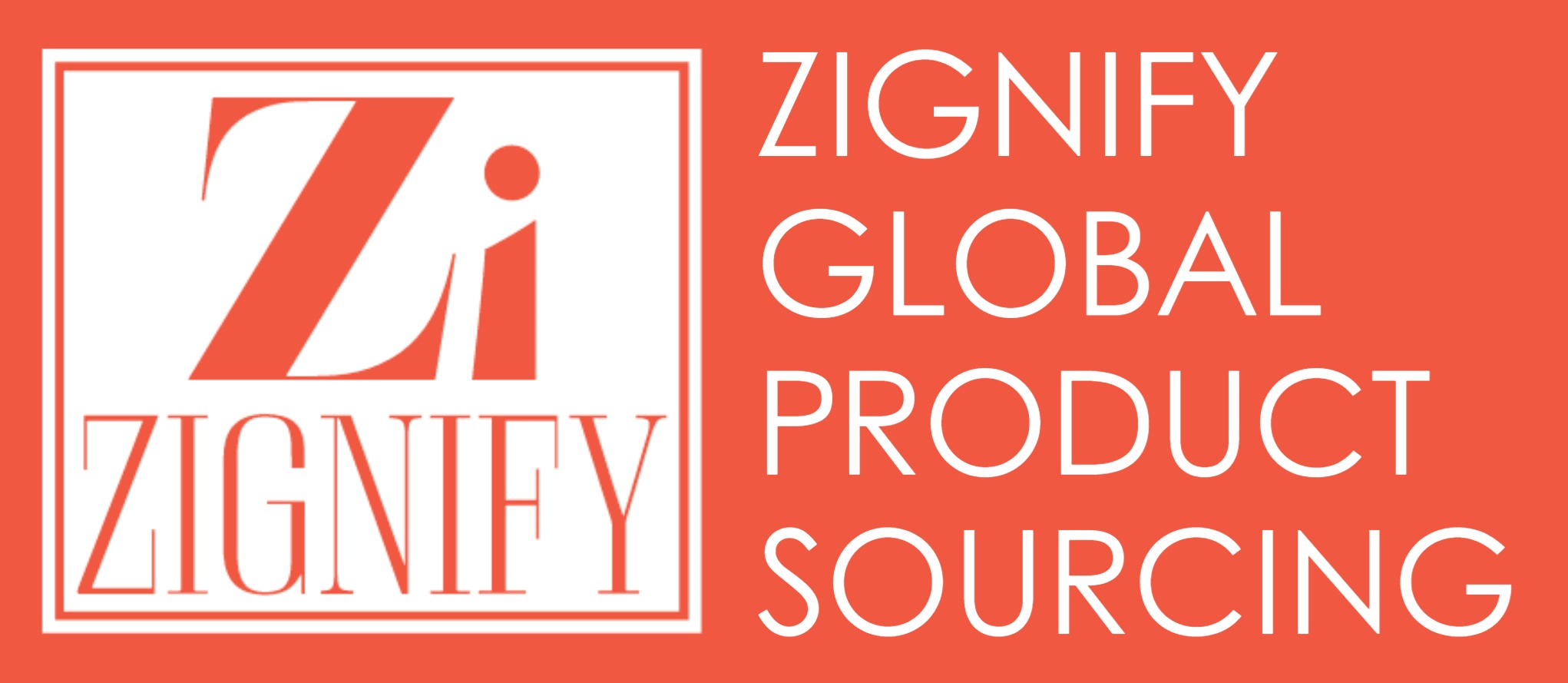
Here are some strategies for ensuring your business’s long-term success…
As supply chain woes continue due to the Covid-19 aftermath and China-US tensions, it’s high time businesses embrace diversifying their sourcing options. One of the countries Amazon sellers can opt for is Turkey. Sourcing products from Turkey for your Amazon business can be a lucrative endeavor. Turkey offers a diverse range of products, competitive pricing, and a strategic geographical location.
However, navigating the intricacies of this market requires careful planning and knowledge to avoid common pitfalls. In this article, we’ll explore ten common mistakes Amazon sellers make when sourcing from Turkey, provide detailed explanations of each mistake, and offer valuable insights on how to avoid them.
Mistake 1: Lack of Understanding of the Turkish Sourcing Landscape
Many Amazon sellers dive into sourcing from Turkey without a clear understanding of the market. They don’t research the product landscape in Turkey or the demand for specific items on Amazon.
Solution:
Before diving into the Turkish market, conduct thorough research. Identify popular product categories in Turkey that align with your Amazon niche. Analyze market trends, product demand, and potential competitors to make informed sourcing decisions.
What Amazon Sellers Can Do:
- Market Research: Utilize market research tools to identify product trends in Turkey.
- Competitor Analysis: Study successful Amazon sellers in your niche to understand their product selection.
- Networking: Attend industry events or connect with local experts for insights into the Turkish market.
Mistake 2: Choosing Unreliable Turkish Suppliers
Some sellers rush into partnerships with Turkish suppliers without due diligence. They might not verify the authenticity of suppliers, their track record, or their ability to meet quality and quantity requirements.
Solution:
Selecting reliable suppliers is paramount. Evaluate potential suppliers meticulously, checking references and online reviews. Verify their certifications and credentials to ensure they align with your quality standards.
What Amazon Sellers Can Do:
- Supplier Background Check: Investigate the supplier’s history, reputation, and financial stability.
- Request References: Ask for references from other businesses that have worked with the supplier.
- Sample Orders: Start with smaller sample orders to assess product quality and reliability.
Mistake 3: Failure to Overcome Language Barrier
Language barriers can lead to misunderstandings and miscommunications between Amazon sellers and Turkish suppliers, resulting in issues with orders, specifications, or product quality.
Solution:
Effective communication is key. Overcome language barriers by using translation services, employing bilingual intermediaries, or utilizing communication tools like Google Translate. Establish clear communication channels with your Turkish suppliers to prevent misunderstandings.
What Amazon Sellers Can Do:
- Hire Bilingual Staff: Employ staff fluent in both English and Turkish or hire translators when needed.
- Use Communication Apps: Utilize messaging apps with translation features for real-time communication.
- Document Everything: Confirm all agreements and specifications in writing to avoid misunderstandings.
Mistake 4: Neglecting Quality Control and Product Inspection
Some sellers underestimate the importance of quality control when sourcing from Turkey. They may skip pre-shipment inspections, assuming that products will meet their standards.
Solution:
Maintaining product quality is non-negotiable. Implement thorough pre-shipment inspections to ensure products align with your specifications and quality standards. Don’t compromise on this critical step.
What Amazon Sellers Can Do:
- Quality Checklists: Create detailed quality checklists for your products.
- Third-Party Inspections: Consider hiring third-party inspection services to ensure objectivity.
- Sampling: Randomly select and inspect samples from production batches.
Mistake 5: Ignoring Legal and Regulatory Compliance
Ignoring or misunderstanding Turkish import/export regulations can lead to legal complications, customs issues, or even product confiscation.
Solution:
Prioritize compliance with Turkish import/export regulations. Familiarize yourself with the rules governing your specific product category. Ensure all necessary permits, licenses, and documentation are in place to avoid legal problems.
What Amazon Sellers Can Do:
- Consult Legal Experts: Seek legal counsel or hire experts knowledgeable in Turkish trade regulations.
- Documentation: Maintain meticulous records of all permits, licenses, and customs documents.
- Stay Informed: Stay updated on changes in Turkish trade regulations that might impact your business.
Mistake 6: Ineffective Pricing and Negotiation Strategies
Some sellers may not have strong negotiation tactics or might rush into agreements without exploring multiple pricing options, potentially overpaying for products.
Solution:
Develop effective pricing and negotiation strategies. Research market prices, consider various suppliers, and negotiate favourable terms. Striking a balance between cost and quality is key to profitable sourcing.
What Amazon Sellers Can Do:
- Price Benchmarking: Compare prices from multiple Turkish suppliers and negotiate based on the data.
- Long-Term Agreements: Consider long-term contracts or bulk orders for potential discounts.
- Flexibility: Be open to adjusting your negotiation strategy based on market conditions.
Mistake 7: Poor Planning for Logistics and Shipping
Inadequate planning for shipping and logistics can lead to delays, unexpected costs, and disruptions in the supply chain.
Solution:
Plan meticulously for logistics and shipping. Factor in shipping costs, delivery times, and potential customs issues. Consider enlisting experienced freight forwarders to ensure smooth operations.
What Amazon Sellers Can Do:
- Logistics Partners: Collaborate with experienced and reliable logistics partners with a track record of handling Turkish exports.
- Plan Ahead: Allow extra time for potential shipping delays and customs clearance.
- Diversify Shipping Routes: Consider multiple shipping routes to mitigate risks.
Mistake 8: Lack of Clear Sourcing Strategy
When sourcing products from Turkey, you must have a well-defined sourcing strategy – including locating the optimal supplier for your needs. Too few small companies do the proper due diligence when sourcing goods: as a result, they’re unlikely to get the best deal in terms of price, quality, functionality, or timely delivery.
Solution:
What Amazon Sellers Can Do: Create a clear, specific sourcing policy. Use these tips to help you:
- Identify suppliers through the Internet, social media, and directories.
- Ensure to verify and vet all suppliers.
- Find a method of payment insurance/protection and manage quality control to safeguard the long-term future of your start-up.
- Decide which sourcing method best fits your needs – examples include direct purchase, using a commission-based sourcing agent, locating a sourcing provider or enlisting a trading company like =Zignify Global Product Company
Mistake 9: Ignoring Issues in Communication
It doesn’t matter where a product is made – there has to be clear communication between you and your manufacturer. Communication is the only way to ensure everything goes smoothly – if communication is an issue, you should employ a translator to prevent any misunderstanding.
You should also define the expected standards from the suppliers – setting out clear expectations in terms of quality, prices and product capacity will certainly increase sales potential later on.
Solution:
- Always define your specifications, standards, requirements and expectations clearly beforehand.
- If you are finding it hard to communicate with your supplier during the early interactions, chances are it will only get more difficult from there. Don’t be afraid to drop them and continue to look until you find one with better communication skills.
- Never assume the producer fully understands your requirements – things like photographs and diagrams can be exceptionally useful.
- Remove any risk of misunderstanding by making your requests as clear and easy to understand as possible.
Mistake 10: Placing an order without due diligence
Placing an order without conducting proper due diligence is a significant mistake that many Amazon sellers make when sourcing products from Turkish suppliers. Rushing into a purchase decision without thoroughly assessing the supplier and the products can lead to various problems, such as receiving subpar quality products, encountering production delays, or even financial loss.
Solution:
To avoid this costly mistake, Amazon sellers should implement a rigorous due diligence process before finalizing any purchase orders.
- Ensure you vet every supplier you wish to buy from – this will increase your chances of finding reliable, good-quality sources.
- Beware of suppliers who hesitate to provide certifications and the necessary required documents. If they deliver the documents, evaluate and verify they are valid. ISO certificates, business licenses and test reports are some of the documents that can demonstrate proof of the legitimacy of the supplier.
- Payment Terms: Be cautious about payment terms. Avoid making large upfront payments to new or unverified suppliers. Consider using secure payment methods or escrow services to protect your funds.
- Read some online reviews – Go through previous reviews from past customers to check for recurring/deal-breaking complaints.
- Review supplier websites and follow up by telephone – review the information on the supplier’s website, and then call the number listed and ask for additional information. Some suppliers do not have an online presence, but that isn’t necessarily a deal breaker.
- Reference Checking: Request references from the supplier. Contact previous or current customers to gain insights into their experiences. Ask about product quality, communication, and reliability.
- Audit Production Facilities: If possible, conduct a physical audit of the supplier’s production facilities. This allows you to assess their manufacturing capabilities, quality control procedures, and working conditions.
- Sample Orders: Start with smaller sample orders to evaluate product quality and consistency. Ensure that the samples meet your specifications and quality standards before committing to larger orders.
- Negotiate Terms: Negotiate the terms of your agreement with the supplier. Be clear about product specifications, quality requirements, delivery schedules, and payment terms. Ensure everything is documented in writing.
- Alternatively, you may wish to hire a sourcing service provider – these can assist you in vetting suppliers, but you should perform some due diligence on this third party before you employ them: you need to know (and verify) key information including its references, track record, reputation, expertise, and cost.
Need help sourcing from Turkey? We can Help
At Zignify Global Product Sourcing, we are committed to adding significant value to our customers’ sourcing endeavors. Our primary goal is to make the process of sourcing products, especially from international markets like Turkey, as seamless and risk-free as possible. We do this by leveraging our extensive network of trusted suppliers, conducting rigorous due diligence, and negotiating favorable terms on behalf of our clients.
Our team of experienced sourcing experts ensures that every product sourced meets the highest quality standards, undergoes thorough quality control checks, and complies with all necessary regulations. We understand the importance of clear communication and as a company that speaks 25+ languages, we will be your eyes and ears on the ground.
At Zignify, we consider our success tied directly to our client’s success. We are dedicated to helping them achieve their business goals by streamlining the sourcing process, minimizing risks, and maximizing the value they receive from their suppliers.
Your success is our success, and we look forward to serving you with excellence in global product sourcing.
